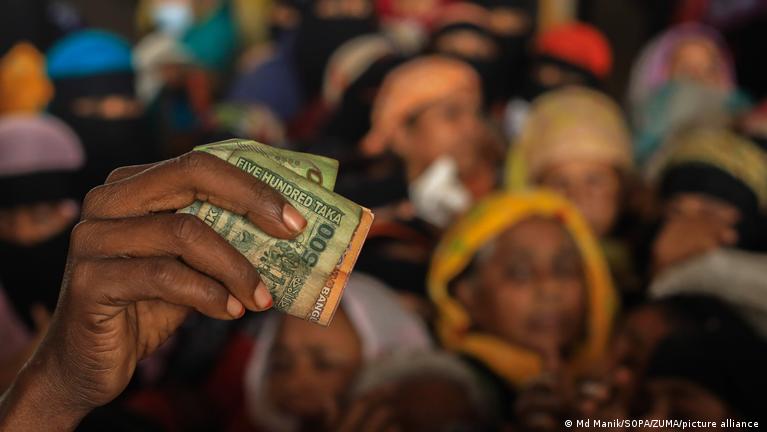# Expenditure increased by 2.01 pc over income
# Overall inflation rate increased by 9.81 pc
# Many leaving capital as expenditure soar up
The wages are not increasing at the same rate like inflation
- SM Nazer Hossain, vice president, CAB
Shahjahan is used to working as a mobile tea seller in Shahbag of the capital. He came from Khulna to Dhaka in search of livelihood. He earns around Tk 700 per day. Earlier, he used to earn Tk 500 to Tk 600 in a day. However, his income has increased a little, but lack has not changed as the expenditure up more than the income. As a consequence, he has to sell tea till late at night to manage his family livelihood.
While talking, Shahjahan told the Daily Post, “The income is higher than before. But there is no money at the end of the day. Some days I have to take loans while buying daily goods. Everything prices are soaring up day by day. The landlord is also raising the rent. For this, I am having a hard time.”
He said, it is becoming difficult to live in Dhaka by renting a house and having a wife. I am thinking of sending everyone to the village. Stay in a mess or garage. If you go to the village, you only have to buy, the vegetables in their fields.
Meanwhile, this difference in Shahjahan's income and expenditure has also emerged as a government. According to the Bangladesh Bureau of Statistics (BBS) consumer price index (CPI), the overall inflation rate in the country was 9.81 percent and the rate of wage growth was 7.80 percent in March. That is, expenditure has increased by 2.01 percent over income.
In this regard, Mustafa K Mujeri, executive director of the research organization Institute for Inclusive Finance and Development (INF), said that people's purchasing power is constantly decreasing, and their ability to cope with the situation is gradually decreasing. They cut costs and cannot ensure healthy food for family members. Inflation is unlikely to come down at present. High inflation has long-term negative effects on health and education. So the government should give importance to this matter in the next budget. The government must expand the coverage of the social safety net both in quantity and quality.
Vice President of the Consumers Association of Bangladesh (CAB) SM Nazer Hossain said that wages are not increasing at the same rate as inflation. As a result, the cost of living is increasing. Due to heavy expenses, pressure is being created on common people. Various suggestions are being given to the government by CAB in this regard, but the government is not working on it.
He said that the government cannot increase the wages at any time. It requires policies. For this, what the government can do for now is to increase investment in the social security sector. We should expand the scope of TCB's subsidized product sales activities. Besides, our import duty remains the same throughout the year. It has to be flexible. When there is a crisis on the product, the duty on that product should be reduced. Then there will not be so much pressure on people.
Debapriya Bhattacharya, Distinguished Fellow of the Center for Policy Dialogue (CPD), a private research organization, said that the real wages of workers are not increasing without increasing the real income. It risks falling below the poverty line in the long run. And as consumption decreases, investment will decrease. It will reduce the growth.
ZH






